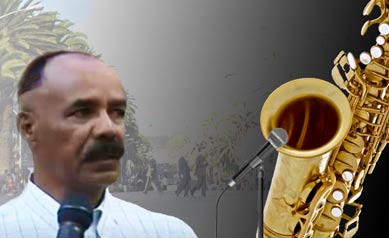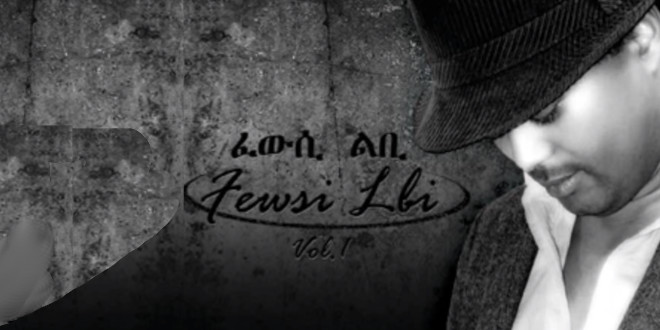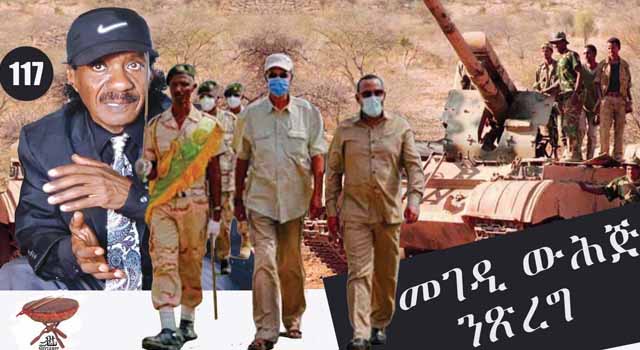Ali Baabe, Adolescent At Seventy

Sometime ago I discovered Banyan is a name of a tree, but I don’t know why the Indian community that lived in Eritrea was called Banyan. As a child, I was a client of a Banyan barber until he left town. Then I shifted to Aya Estifanos, who also moved to Tessenei. My next barber was the stern Gilay who had a suqren, the traditional earring. One time I had my hair cut by a barber who had a shop set under a tree at the police camp. A few times I went to Sereqe or Solomon, basically because my dear martyred friend Bashir Neberay convinced me Sereqe was the best barber in the world, in a time when our world was Keren, extending to Asmara and Agordat beyond the horizons. Apart from that, I never went to other barbers, not even in Asmara, but stayed a loyal customer of Gilay.
When I joined the armed struggle, I didn’t cut my hair for three years and it became so long and thick. Once, while we sat on the edges of Barda’a, looking at Asmara from a distance, a witty colleague joked, “while we struggle to liberate our capital city, Eritrean lice have already declared your hair their capital city.”
At one time a farmer in Seharti came to us looking for the “Beni-Amretay boy” to cure some skin disease that plagued his cow. I confessed I was not Beni-Amretay, and I knew nothing about cows. He wouldn’t budge and blurted, “don’t try, your hair gives you away, chiw zbelka Beni-Amratay!” I had to improvise something and told him to fetch olio Bruciato, burned out engine oil. As a child I have seen wood-sellers paint their diseased camels with burned engine oil. The man went to Asmara and brought some burned oil; we brushed the cow with it. Stories circulated about a Beni-Amretay who cures cattle and I became a popular, blessed veterinarian son of Saharti, thanks to the capital city of Eritrean lice, on my head. When I returned to Saharti a few weeks later, the people were just short of handing me the key to the village.
Like the mythical Samson, who had all his power in his hair, I refused to cut my hair until Hamid Mahmoud, the military commander of the Hamassen region, came with scissors and pronounced what sounded like an ultimatum: your hair or your head! He mowed my hair and left it barely an inch long. First, I remembered Delilah, and then I wished he was Gilay. My head felt like a clay pot until my hair grew back again.
Years later when I lived in different Gulf states, I preferred Pakistani barbers. After they cut the hair, they work on the scalp and the temples, then they skillfully spin a thread over your face to pull out all the facial hair. They leave you feeling like a groom walking out of a massage parlor.
Once in Hong Kong I saw a barber sign on a door and entered… the stairs took me to the second floor, and into a big hall that looked like a pharmacy–shelves full of different plastic bottles and cans, covered the walls. Gilay would never work in that place even if they transported the entire shop for him to Keren, for free. Too effeminate, he would have said of the oils and creams!
Barbershops fascinate me, the old magazines, the stories, the news, the gossip; the wisdom that one picks from there is immense.
Three years ago in Australia, a Chinese lady gave me a haircut and I shared the story, “Wise Barber, Ravens and Machiato.” Now I am once more pulled to the topic of hairs after I saw a picture of a Ali Baabe haircut. I have no idea what Ali baabe means, but that is what it’s called in Eritrea. if it is a corruption of Ali Baba, it fits the capo and his forty thieves.
A head could either be fully shaven, or it’s Gotena (Afro). Otherwise, it’s Ali Baabe, the haircut that inspired many traditional songs before Bereket Mengisteab killed it with his song, “gotena Hdmo.” Of course there was the craze of the seventies, the flat top haircut–no one sang for it.
Isaias’ Ali Baabe
In a drama, the Kuwaiti funnyman Abdulhussen Abdulredda played the role of a fifty year old man who behaves like an adolescent; the play is aptly called Murahiq fil Khemsin (adolescent at Fifty). Last week, a picture of Isaias with an awkward haircut was widely circulated in the social media; it reminded me of both Ali Baabe and the Kuwait play. But be careful, I am not saying Isaias Afwerki is an adolescent at fifty, but at seventy.
Some years ago Isaias displayed the “Johntra” haircut, apparently a style popularized by the American actor, John Travolta. Poor Isaias must have missed out on the natural neighborhood adolescence, I am not sure if he wears sagging pants. But those who know him say he didn’t miss adolescence. Worse, he has always been engaged in a more severe type of adolescence, spilling blood and leaving stains on his wake of adventure, causing fragmentation and mayhem that Eritreans are still suffering from. He had just started his second phase of adolescence when he gambled with the fate of the Eritrean revolution and passed the wool over the eyes of many of his naive colleagues to achieve his goal. Viola! He became the neighborhood bully, again. Now he is the uncontested bully, not over the kids of Geza Kenisha only, but over the entire country, intimidating Eritreans into submission. But who in his seventies would have that kind of haircut unless he has a severe longing for adolescence?
A friend was kind when he tried to explain the haircut. He said, Isaias suffers from alopecia areata.
That awkward medical name has a simple equivalent in Tigrinya: Latsaayto. It’s the patchy hair loss that kills the hair and leaves smooth bald patches on the head. If Isaias is inflicted by Latsaayto, he is absolved. However, someone should have brought him chicken poop, the traditional medicine that is smeared on the affected patches–they say the hair grows again!
If Eritreans were lucky, a brave adviser should have told him to either leave the patches be, shave his entire head, or pull one of his dozens of baseball hats. However, he doesn’t have brave advisers to tell him he is driving the country into the abyss, let alone have a say on his haircut. At any rate, to show your face in that haircut? That is embarrassing to his opponents, let alone his cult-followers.
The Yemane Gebreab Logic
Just like his government’s position in the Saudi led military campaign in Yemen, Yemane Gebreab would say, “I don’t like the haircut, and I like it, and I am not indifferent about it.” Maybe he gave Isaias a similar advice. Incidentally, there should be a Latin term that describes such illogical position–the political equivalent of a hair loss, which entangle the nerves of the brain, short-circuits them, and the malfunctioning mind can’t process logic. Let’s call it Alopecia irrationalata.
Once I talked to a person who wanted to write for awate.com and I explained the mission and policies of the website. The person surprised me with an awkward view. It could have been Alopecia irrationalata. The person told me, “I don’t support the PFDJ; I don’t support the opposition; I am not neutral; and, sometimes I am neutral.” Now. you might ask me, what’s the color of photocopy paper?
According to the Yemane Gebreab logic, my answer would be: “it could be white, it could be non-white, but I am not saying it is or it’s not, and it doesn’t mean I do not know or I do not have an opinion about its color!” That kind of reply will certainly make you feel you are punished to run around Gira Fiori a hundred times. I know, I know. It’s tough and dizzying!
Everyone in the Eritrean justice camp calls for unity of purpose, for a unified struggle; that requires a certain level of loyalty to each other, which is the basis for building alliances. Anyone who is opposed to the Isaias’ regime is technically part of the opposition. And all genuine people expect a certain level of affinity, loyalty, and honesty from individuals who are supposed to be their allies. I wanted to say more about this, but HaileTG of the awate forum articulated it better. I copied his comment and took the liberty in altering it to fit the context of this edition.
“Who do you have in mind when you say “Opposition”? Let’s assume it means ‘Everyone who opposes Isaias Afwerki’s regime’ –that is how the opposition understands the term. All the combined voices crying for change are the “Opposition”. Popular uprising requires critical mass and in that mass, some people are organized as movements, parties, facilitators, think tanks, activists, media persons, artists…. Still others lead individual activities, group activities, clandestine activities. Yet others break out of the iron walls, crossing the border at any cost. Therefore, when one criticizes the “opposition” it is assumed to be a misgiving directed at the entire mass of voices. For example, rarely do we see such mass coming out in force as in the case of the Geneva demo of June 26. No segment of the “Opposition” from those described above would have brought such strength to the Geneva showdown, alone. So, when criticizing the opposition, unless it is clarified and is specific, it implies that it is targeting the entire opposition.”
If I add anything, I will spoil it. Ca suffit!
The Saxophone Runs for the Eritrean presidency
In the last edition of Negarit I expressed my final-and-binding hate for the saxophone. Surprisingly, I faced a barrage of comments. Ethiopians and Eritreans showed a rare solidarity. They provided me with links to tens of clips, all starring the saxophone. They hoped I would get used to the donkey bray-sound, and be convinced to like the saxophone, this is one thing I wish both people didn’t agree on. For God’s sake, they are denying us one reason to fight! However, though I tried to be friendly with the instrument, I failed. I was so agitated by the Saxophone Lobby that at night, I found myself supervising a presidential election in Eritrea. Two things were running for president, two un-animated presidential hopefuls: Saxophone against Isaias Afwerki.
Naturally, a few voters were captivated by the Ali Baabe haircut of Isaias, and voted for it. However, most of the people voted for Saxophone which won the election, by an astounding ratio of 10-1.
The landslide victory of Saxophone over Isaias irritated the losing candidate and its group who refused to concede. In protest over the outcome and in defiance, they refused to leave their campaign station–a large white tent–where everyone, men and women alike, imitated the Ali Baabe haircut and wrapped themselves in Isaias’ flag. They wouldn’t stop beating the drums. One of the men in the tent screamed, “we will party here until the next election if that is what it takes, we can’t accept the winning of the inferior Saxophone over our superior Koboro.”
Admirably, in its campaign tour, the saxophone promised to change the situation in Eritrea. It declared, “My term will be better than the 24-year term of my opponent; I promise to rip off all the blindfolds that Isaias wrapped around your eyes, though unfortunately, you will go blind once you see my imitation-chandelier shape, and fake gold color. But I promise to pierce your eardrums, Deaf and Blind is what I have in mind!” The people at the tent didn’t hear any of the candidate’s statements, his words were buried under the loud drum beats.
Honestly, I am perplexed, however, I will be at the inauguration ceremony when the other thing, Saxophone, is formally declared the president of Eritrea. The public ceremony will be held at the Awate forum, where some are bent on initiating debates they know they cannot win, and cannot explain why they started it. Join me there and bring your Koboro; Saxophone is not welcome, please!
Damn, why did they create alarm clocks?




Awate Forum